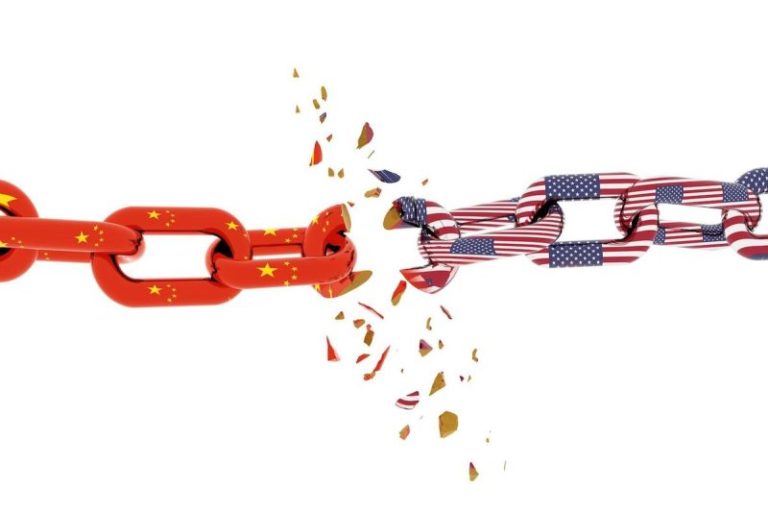Exploration Program Targets Near-Mine Ounce Growth
Fortune Bay Corp. (TSXV: FOR,OTC:FTBYF) (FWB: 5QN) (OTCQB: FTBYF) (‘Fortune Bay’ or the ‘Company’) is pleased to announce that exploration drilling has commenced on multiple high-priority exploration targets at its 100%-owned Goldfields Gold Project (‘Goldfields’ or the ‘Project’) in northern Saskatchewan.
The targets include opportunities for resource expansion at the Box and Athona deposits, and potential for the addition of new resources from underexplored historical occurrences at Frontier, Golden Pond, and Triangle — all within two kilometres of past-producing and expected future mine infrastructure (Figure 1).
An initial 17 exploration holes (3,250 metres) are planned with provision to expand the program in a results-driven manner. The exploration drilling will be carried out in conjunction with development-related drilling, supporting advancement of Goldfields to Pre-Feasibility Study, as described in the Company’s recent News Release.
Gareth Garlick, VP Technical Services for Fortune Bay, commented ‘We have initiated drilling within three weeks of closing our financing, demonstrating the pace at which we intend to advance the Project. Goldfields is already positioned as a robust development asset in Canada’s top mining jurisdiction, with work toward pre-feasibility and permitting in progress. Our exploration program is designed to unlock additional near-mine ounces that could further strengthen Goldfields’ exceptional economics and improve the overall development profile.’
Box Deposit – High-Grades Open at Depth
The Box deposit is wide open at depth. The Company’s 2021 drilling confirmed high-grades extending up to 240 m beyond the extents of the current open-pit constrained Mineral Resource Estimate (‘MRE’) (Figure 2), including:
- 13.22 g/t Au over 8.0 m from 426.0 to 434.0 m (drill hole B21-340)
- 8.74 g/t Au over 5.0 m from 575.0 to 580.0 m (drill hole B21-339)
- 8.00 g/t Au over 12.0 m from 509.0 to 521.0 m (drill hole B21-336)
- 8.00 g/t Au over 4.0 m from 375.0 to 379.0 m (drill hole B21-334)
Four initial drill holes (2,000 m) are planned to test and infill large gaps (up to 170 m) in the existing drill hole coverage outside of the MRE to test for extensions to high-grade zones with underground mining potential.
Gold mineralization occurs in sheeted and stockwork quartz–sulphide veins within the Box Mine Granite (‘BMG’), controlled by N-S and NW-SE trending structures. The Box Deposit currently hosts an open-pit constrained mineral resource including 734,300 oz Indicated (16.2 Mt @ 1.41 g/t), and 114,100 oz Inferred (3.4 Mt @ 1.04 g/t) (effective date September 11, 2025).
Athona Deposit – Near-Pit Resource Expansion Potential
Mineral resources at Athona are hosted entirely within the Athona Mine Granite (‘AMG’). The outcropping Athona West Mine Granite (‘AWMG’) is located immediately west of the AMG and displays gold mineralization similar in style to the AMG, but has not seen sufficient drilling to support estimation of mineral resources (Figure 3).
Two initial drill holes (270 m) are planned with the dual purpose of testing mineralization continuity in the AWMG and testing an underlying extension of the AMG below the AWMG. This target is located directly adjacent to, and partially overlapping, the Athona open-pit designed in the Updated PEA and has potential to cost-effectively add mineral resources with limited delineation drilling.
Gold mineralization at Athona occurs as stacked quartz–sulphide vein arrays controlled by NNE-trending structures. The Athona Deposit (AMG) currently hosts an open-pit constrained mineral resource including 255,400 oz Indicated (7.8 Mt @ 1.02 g/t) and 100,100 oz Inferred (4.0 Mt @ 0.78 g/t) (effective date September 11, 2025).
Exploration Drilling at Underexplored Historical Gold Occurrences
The Frontier, Golden Pond, and Triangle occurrences — all located within two kilometres of past-producing and expected future mine infrastructure — represent opportunities to define new mineralized zones that could ultimately contribute additional gold ounces to future Mineral Resource Estimates, thereby enhancing the overall scale and optionality of the Goldfields Project. The 2025/2026 exploration drilling program has been designed to test the size potential and continuity of shallow mineralized systems at these targets. Results from this work will be used to prioritize areas for follow-up delineation drilling, with the objective of advancing the most compelling opportunities in a cost-effective and timely manner.
Frontier – Located 800 metres northwest of the Box Deposit, the mineralized Frontier Mine Granite (‘FMG’) forms a 10–25 metre thick tabular body striking ENE–WSW and dipping gently to the SSE, similar in style to the Box Mine Granite. Historical work indicates that most mineralization occurs within a topographic high (outcropping to ~25 metres depth), which could provide a favourable strip ratio should a mineral resource be defined. Three initial drill holes (340 metres) are planned test for down-dip extensions of historically identified mineralization.
Golden Pond – Historical drilling at Golden Pond returned near-surface gold mineralization, with the vein system interpreted to remain open to the northwest. Six initial holes (440 metres) are planned to confirm historical results and to evaluate both along-strike and down-dip extensions of the mineralized structure.
Triangle – Triangle hosts a broad quartz-vein system that has returned surface grab samples up to 177 g/t gold from recent fieldwork. Unlike the granite-hosted targets at Box, Athona, Frontier, and Golden Pond, mineralization at Triangle occurs within less-resistant calcareous bedrock and is often masked by overburden. Historical drilling was limited and did not appropriately test the interpreted vein orientation.
Two initial drill holes (200 metres) will be completed to properly evaluate the target and assess continuity of the mineralized system both along strike and down dip.
Technical Disclosure
Current Drilling and Sampling Results
The Box 2021 (‘B21’) and 2022 (‘B22’) drill holes were oriented at moderate dips (-55 to -60 degrees) to the east to intersect the dominant mineralized vein-sets at high angles, and true thicknesses are estimated to be approximately 80% of the intersected lengths. Drill results shown are assays from 1 metre samples of half-cut NQ core composited into longer intervals using a minimum lower cut-off of 0.5 g/t Au, and maximum 5 metres of consecutive waste defined as < 0.3 g/t Au.
Surface sample results from Triangle derive from grab samples collected by hand from outcrop. Grab samples are selective in nature and are not necessarily representative of the overall mineralization at the occurrence.
Historical Results
Historical exploration results for Golden Pond and Frontier, that are being used to plan exploration holes, derive from assessment reports 74N08-0150 and 74N07-0315, respectively. These reports and supporting datasets are available for download from the Saskatchewan Mineral Assessment Database (‘SMAD’). Accordingly, historical results have not been verified and there is a risk that any future confirmation work and exploration may produce results that substantially differ from the historical results. The Company considers historical results relevant to assess the mineralization and economic potential of the property.
Mineral Resource Estimate
The Mineral Resource Estimate for Box and Athona is provided in the technical report titled ‘Goldfields Project Updated NI 43-101 Technical Report & Preliminary Economic Assessment, Saskatchewan, Canada‘, dated October 20, 2025, prepared by Kevin Murray, P.Eng.; Scott C. Elfen, P.E.; James Millard, P.Geo.; Jonathan Cooper, P.Eng.; Marc Schulte, P.Eng.; Cliff Revering, P.Eng.; and Ron Uken, Pr.Sci.Nat. for Fortune Bay Corp. The report is available under the Company’s issuer profile on SEDAR+ (www.sedarplus.ca) and on the Company’s website at www.fortunebaycorp.com.
Qualified Person & Technical Disclosure
The technical and scientific information in this news release has been reviewed and approved by Gareth Garlick P.Geo., Vice-President Technical Services of the Company, who is a Qualified Person as defined by NI 43-101. Mr. Garlick is an employee of Fortune Bay and is not independent of the Company under NI 43‑101.
About Goldfields
The 100% owned Goldfields Project (‘Goldfields’ or the ‘Project’) is located approximately 13 kilometres south of Uranium City, Saskatchewan. Goldfields hosts the Box and Athona gold deposits, as well as additional gold showings within the prospective Goldfields Syncline. The Box deposit was historically mined underground between 1939 and 1942, producing 64,000 ounces of gold. The Project is located within a historical mining area and benefits from established infrastructure, including a road and hydro-powerline to the Box deposit. Nearby facilities and services in Uranium City include bulk fuel, civils contractors, and a commercial airport.
About Fortune Bay
Fortune Bay Corp. (TSXV:FOR,OTC:FTBYF; FWB:5QN; OTCQB:FTBYF) is a gold exploration and development company advancing high-potential assets in Canada and Mexico. With a strategy focused on discovery, resource growth and early-stage development, the Company targets value creation at the steepest part of the Value Creation Curve—prior to the capital-intensive build phase. Its portfolio includes the development-ready Goldfields Project in Saskatchewan, the resource-expansion Poma Rosa Project in Mexico, and two optioned Athabasca Basin uranium portfolios providing non-dilutive capital and upside exposure. Backed by a technically proven team and tight capital structure, Fortune Bay is positioned for multiple near-term catalysts. For more information, visit www.fortunebaycorp.com or contact info@fortunebaycorp.com.
On behalf of Fortune Bay Corp.
‘Dale Verran’
Chief Executive Officer
902-334-1919
Cautionary Statement
Information set forth in this news release contains forward-looking statements that are based on assumptions as of the date of this news release. These statements reflect management’s current estimates, beliefs, intentions, and expectations. They are not guarantees of future performance. Words such as ‘expects’, ‘aims’, ‘anticipates’, ‘targets’, ‘goals’, ‘projects’, ‘intends’, ‘plans’, ‘believes’, ‘seeks’, ‘estimates’, ‘continues’, ‘may’, variations of such words, and similar expressions and references to future periods, are intended to identify such forward-looking statements, and include, but are not limited to, statements with respect to: the results of the Updated PEA, including future Project opportunities, future operating and capital costs, closure costs, AISC, the projected NPV, IRR, timelines, permit timelines, and the ability to obtain the requisite permits, economics and associated returns of the Project, the technical viability of the Project, the market and future price of and demand for gold, the environmental impact of the Project, and the ongoing ability to work cooperatively with stakeholders, including Indigenous Nations, local Municipalities and local levels of government. Since forward-looking statements are based on assumptions and address future events and conditions, by their very nature they involve inherent risks and uncertainties. Although these statements are based on information currently available to the Company, the Company provides no assurance that actual results will meet management’s expectations. Risks, uncertainties and other factors involved with forward- looking information could cause actual events, results, performance, prospects and opportunities to differ materially from those expressed or implied by such forward-looking information. Forward looking information in this news release includes, but is not limited to, the Company’s objectives, goals or future plans, statements, exploration results, potential mineralization, the estimation of mineral resources, exploration and mine development plans, timing of the commencement of operations and estimates of market conditions. Factors that could cause actual results to differ materially from such forward-looking information include, but are not limited to failure to identify mineral resources, failure to convert estimated mineral resources to reserves, the inability to complete a feasibility study which recommends a production decision, the preliminary nature of metallurgical test results, delays in obtaining or failures to obtain required governmental, environmental or other project approvals, political risks, inability to fulfill the duty to accommodate Indigenous Nations and local Municipalities, uncertainties relating to the availability and costs of financing needed in the future, changes in equity markets, inflation, changes in exchange rates, fluctuations in commodity prices, delays in the development of projects, capital and operating costs varying significantly from estimates and the other risks involved in the mineral exploration and development industry, and those risks set out in the Company’s public documents filed on SEDAR. Although the Company believes that the assumptions and factors used in preparing the forward-looking information in this news release are reasonable, undue reliance should not be placed on such information, which only applies as of the date of this news release, and no assurance can be given that such events will occur in the disclosed time frames or at all. The Company disclaims any intention or obligation to update or revise any forward-looking information, whether as a result of new information, future events or otherwise, other than as required by law. For more information on Fortune Bay, readers should refer to Fortune Bay’s website at www.fortunebaycorp.com.
Neither TSX Venture Exchange nor its Regulation Services Provider (as that term is defined in policies of TSX Venture Exchange) accepts responsibility for the adequacy or accuracy of this release.
SOURCE Fortune Bay Corp.
View original content to download multimedia: http://www.newswire.ca/en/releases/archive/November2025/25/c2492.html










